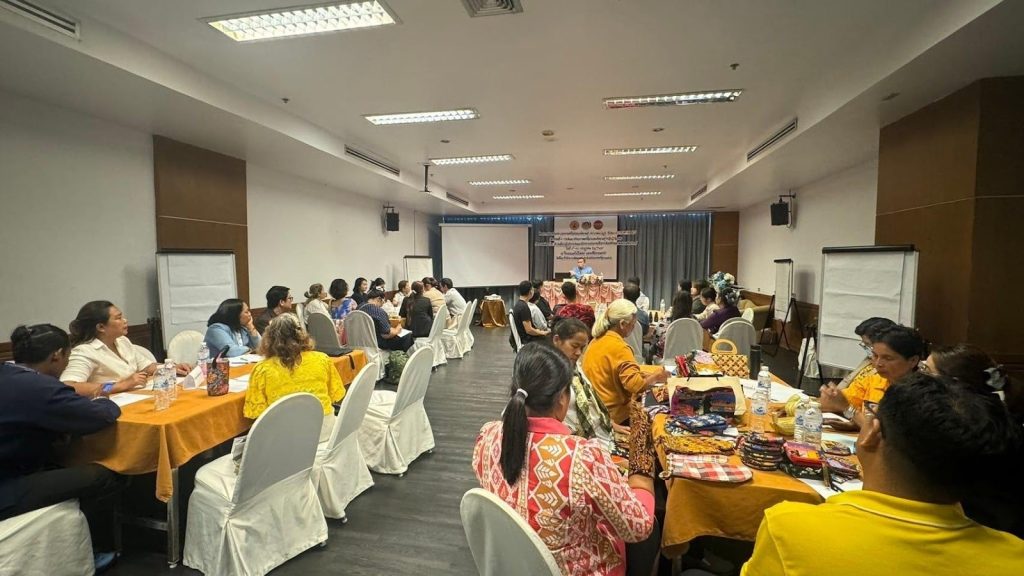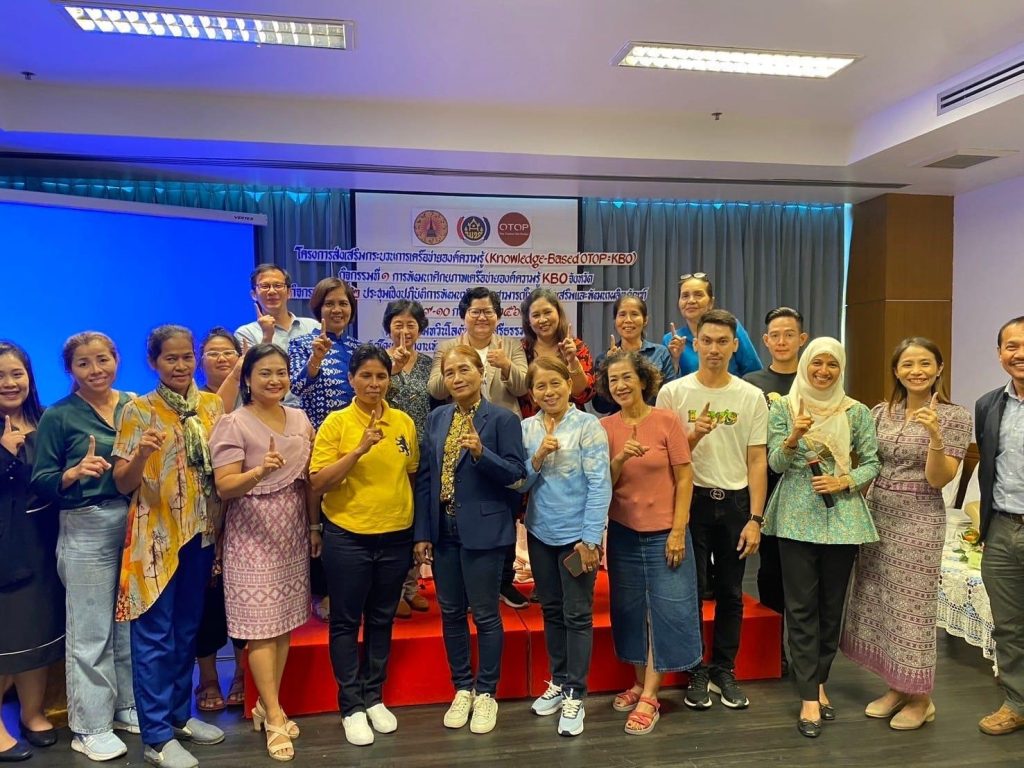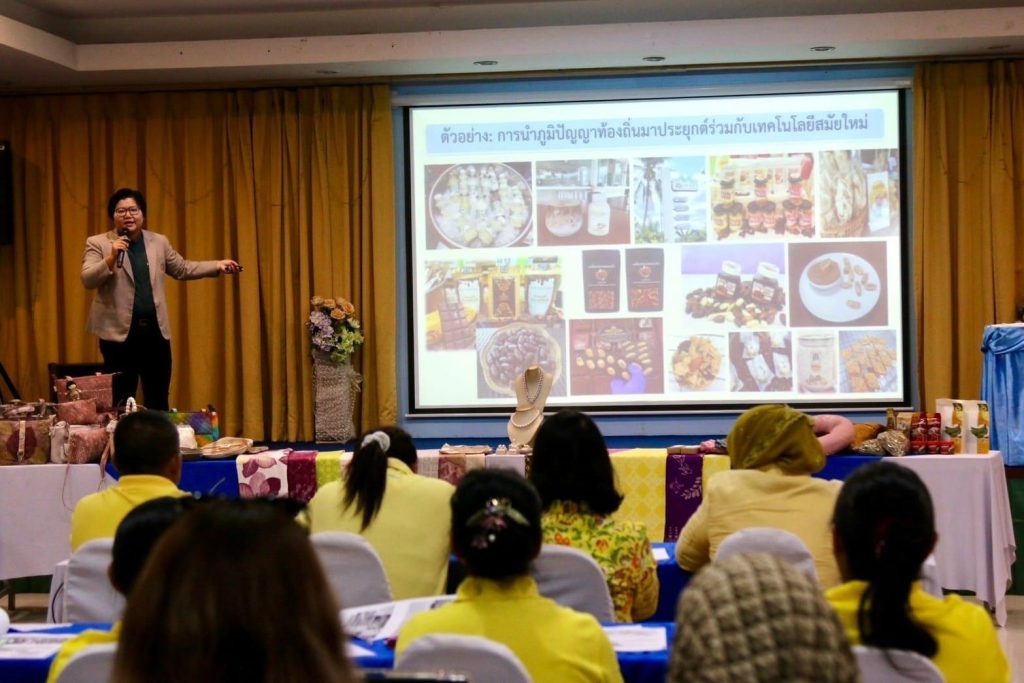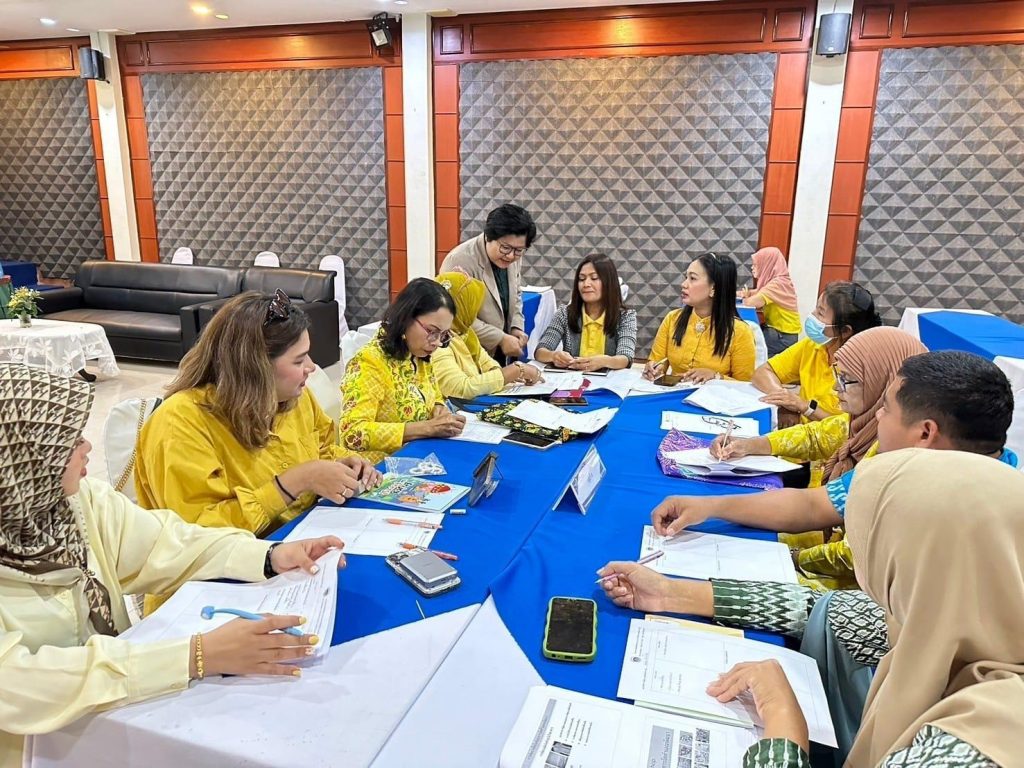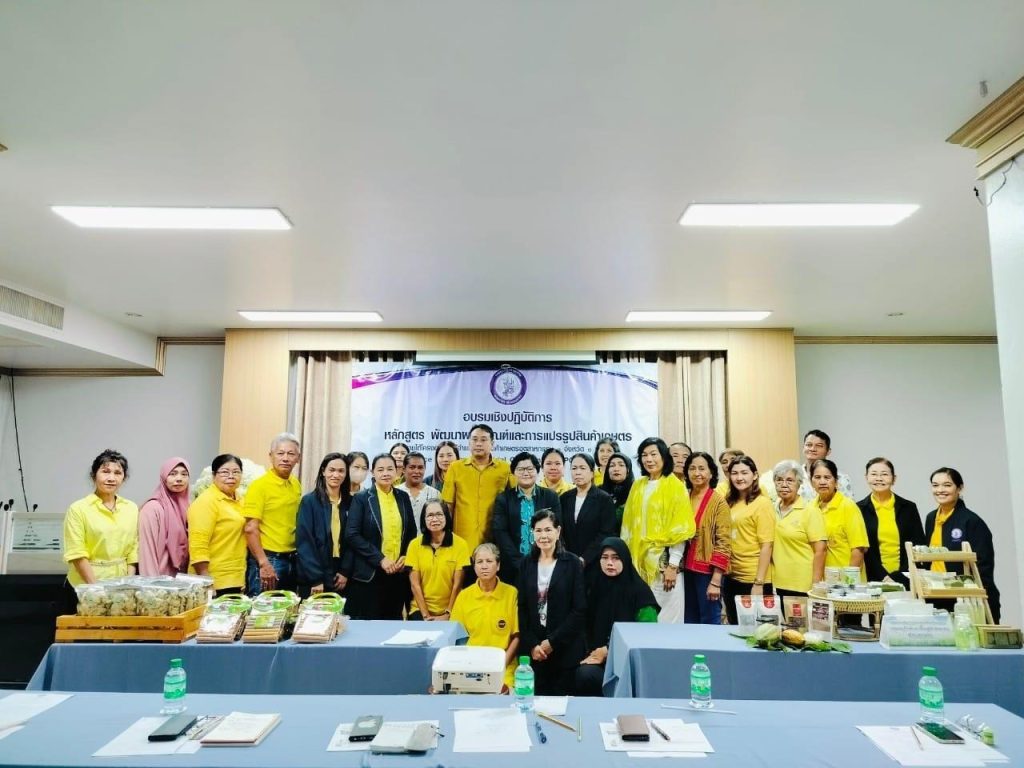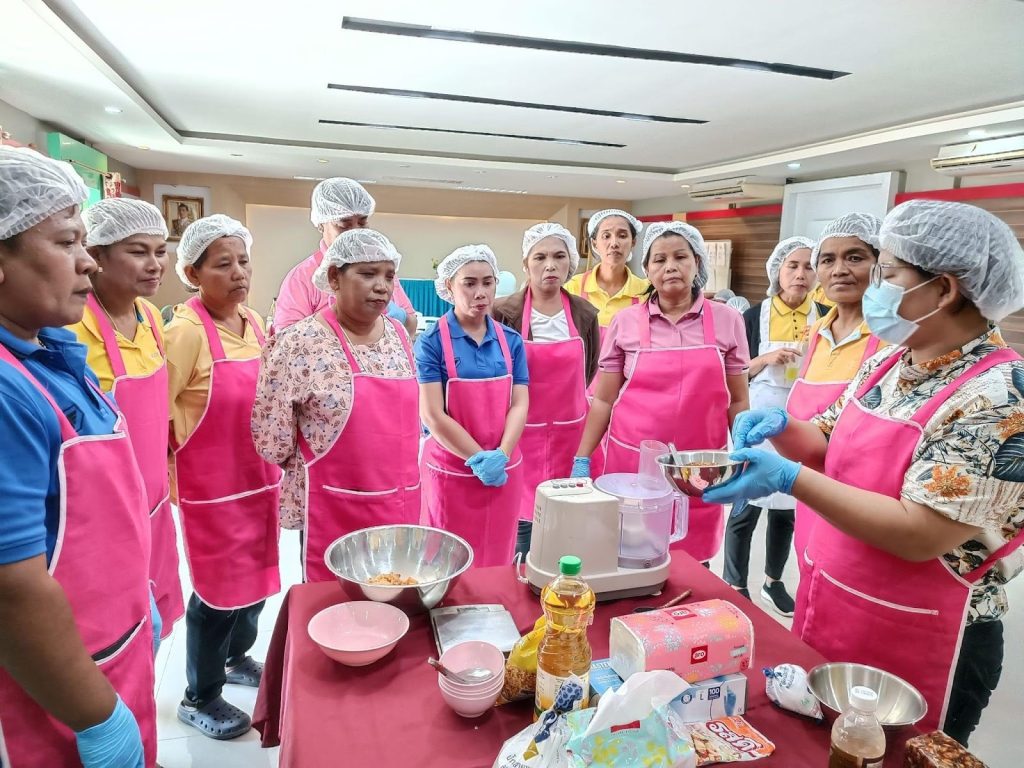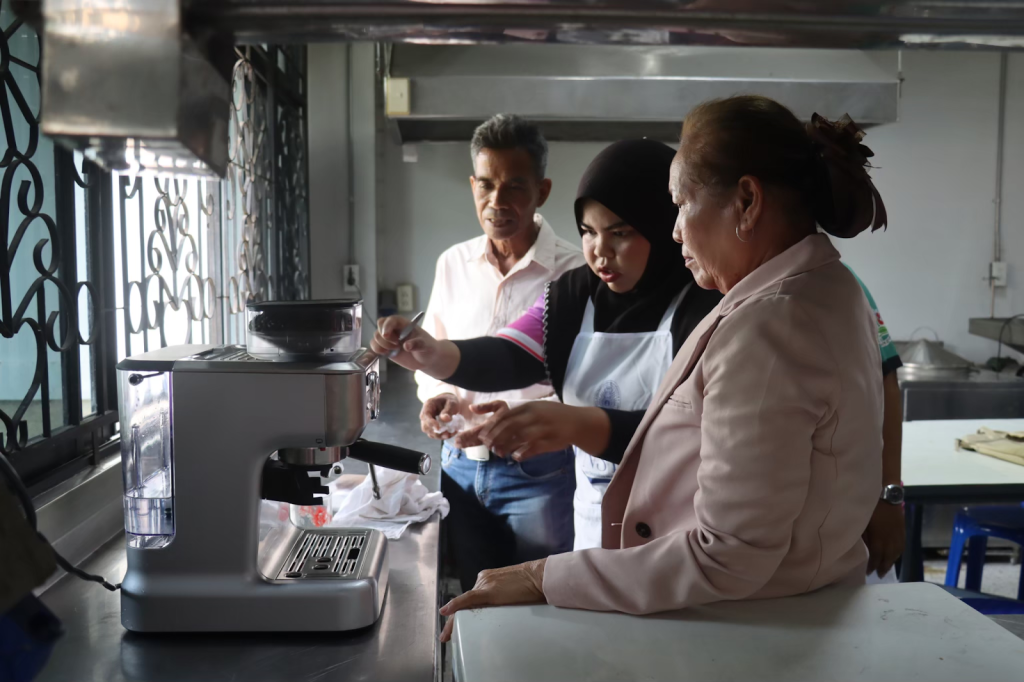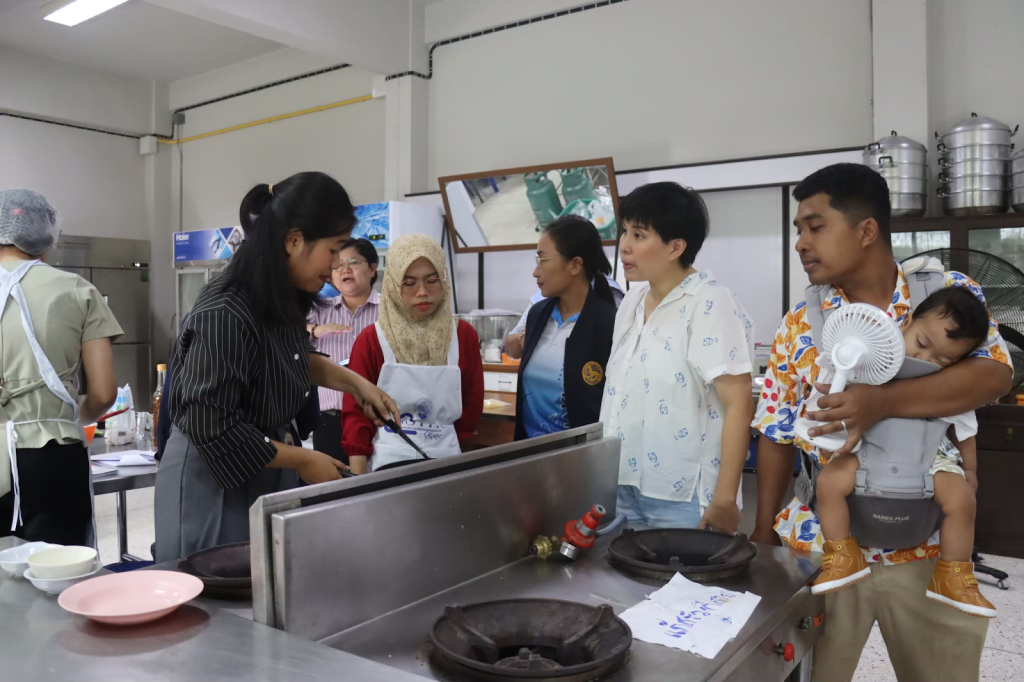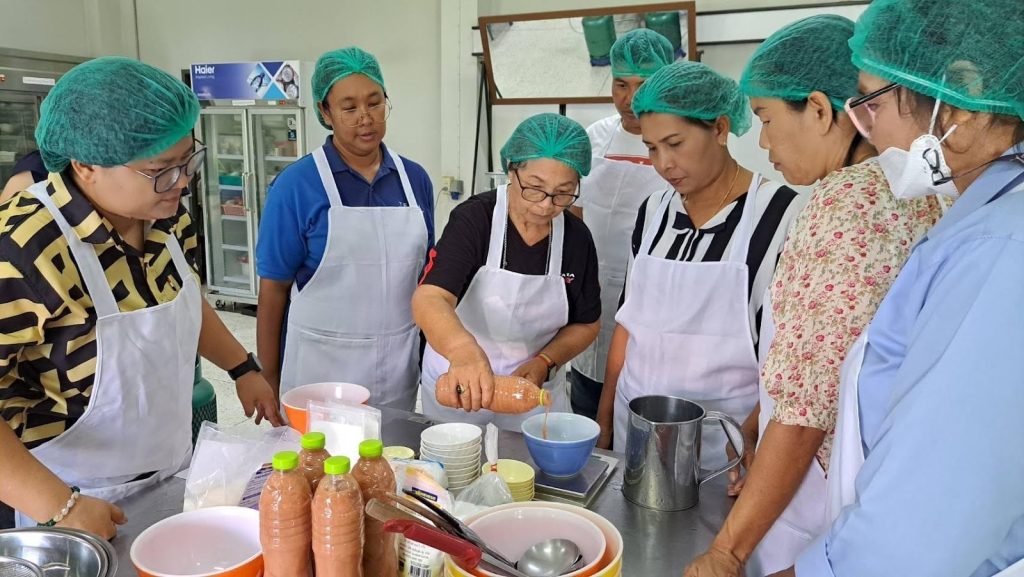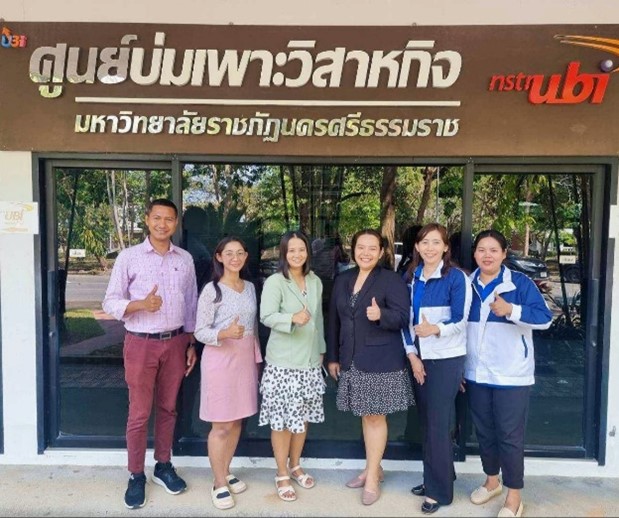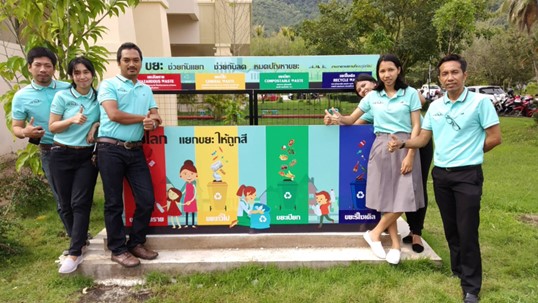University Access to Local Farmers and Food Producers (Year 2024)
Nakhon Si Thammarat Rajabhat University (NSTRU) – Providing Academic Access and Support to Local Farmers and Food Producers (SDG 2)
Nakhon Si Thammarat Rajabhat University (NSTRU) serves as a knowledge and technology hub that transfers expertise to empower farmers and food producers in developing stable, sustainable careers. This initiative aligns with Sustainable Development Goal 2 (SDG 2): “Zero Hunger”, specifically target 2.5.3, which focuses on facilitating farmers’ access to academic resources and facilities. In the 2024 academic year, NSTRU collaborated with provincial and community development offices to open university facilities and laboratories for local farmers and food producers.
Collaborations and Objectives
The university partnered with the Nakhon Si Thammarat Provincial Agricultural Office, the Ranong Provincial Agricultural Office, and the Nakhon Si Thammarat Provincial Community Development Office to facilitate the use of facilities such as: the Plant Breeding Laboratory, Food Processing Laboratory, and Food Analysis Laboratory under the Faculty of Science and Technology.
The objectives were to:
- Provide farmers and producers access to scientific and technological resources;
- Transfer knowledge for local food processing and innovation;
- Support product quality development and certification (FDA, GMP);
- Foster sustainable community-based food innovation.
Implementation and Key Activities
The program targeted 210 participants including farmers, food producers, and small community enterprises from Nakhon Si Thammarat and Ranong provinces. Activities included:
- Opening food processing and analysis labs for experimentation and recipe development;
- Providing training on food manufacturing, quality control, and certification application;
- Supporting the use of university tools and technology for local product development (e.g., coconut, mangosteen, cocoa, coffee, herbs, and Thai desserts);
- Building collaboration between academia, government, and the community to foster a local food innovation ecosystem.
Key Results and Impacts
- 210 farmers and entrepreneurs accessed university laboratories for product development.
- Over 20 prototype food products were created from local raw materials.
- Five community products passed quality inspections and received FDA certification.
- A sustainable network was established between universities, government agencies, and communities.
Economic Impact: Farmers

